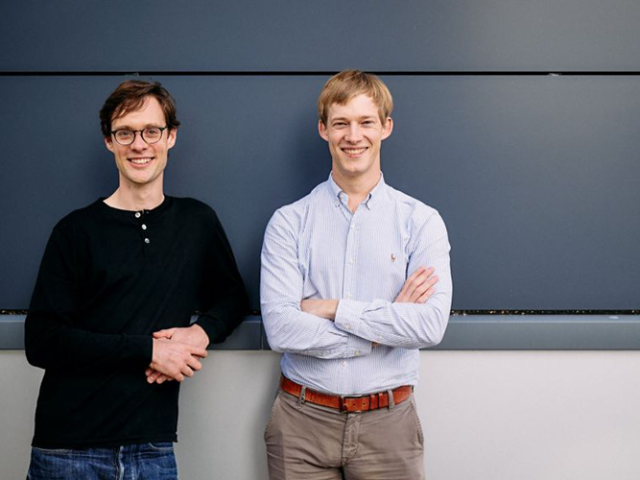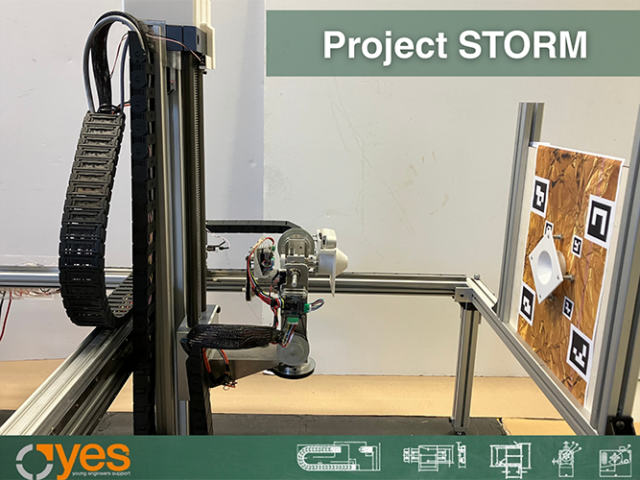How do we protect ourselves in cyber space? More and more of our lives are lived online and there is more and more reliance on the internet. Our lights, water, electricity, gas etc is now controlled by data. Therefore, to keep that running we need to know how to protect ourselves. At the Bett Show 2019 Chris Enser, Deputy Director for Skills and Growth, National Cyber Security Centre (NCSC) explained how his organisation can help.
He commented: “What I’m interested in in my role is how we develop the skills for the future that will enable people to protect themselves, their families and the life we all want to lead. That is what the NCSC was set up to do.”
The NCSC has four main objectives. Understanding the environment – who are posing the threat, and what they are trying to do. Enser added: “Every day there are newspaper headlines about another organisation that has been hacked, compromised or are losing data. So we need to understand those attackers – are they organised crime, nation states etc? What are they doing, what are they after, what are their capabilities and how do we protect ourselves against them?”
The NCSC also helps organisations reduce their risk, whether it be a school, local authority, a corporate, a FTSE 100 company or even an individual.
However, things do happen, and risks become reality. And when things do happen the NCSC steps in to help the organisation recover from whatever compromise they have had and reduce the impact.
Finally the NCSC helps to build capacity and capability. “We don’t do this alone,” Enser added: “We do this with colleagues across Government, but a key issue is how we build that capability and capacity for the future.”
Skills
Enser continued: “We need people with the right skills to be able to do all the things that I mentioned previously.” With that in mind the NCSC offers its Cyber First programme which has been running for four to five years and helps bring new talent into the organisation, helps Government to find new talent and it helps the nation as a whole.
“Cyber security is an area that anyone can work in – it’s not just about technology,” said Enser. “However, where we struggle to find good people and where industry also struggles, is people with really good knowledge of how computers work.”
The fact of the matter is that there is not enough people studying computing. When you compare it to a subject like biology for example, there are four times the number of people studying biology than there are studying computing. It’s also less of a core subject, for example, 1,380 schools are offering A-level computing compared to 2,470 offering chemistry.
Enser added: “As an employer, when we interview people, what we’re seeing is that often candidates don’t tend to have the right knowledge to do the sort of work that we do, which means that we have to conduct a lot more work to give them the top level skills required.
“The question I get asked quite often is why we are doing the things we do, because the perception is that kids today already understand technology, as they are using it every day. However, it’s not about using technology, it’s about how that technology works, and that’s where we need inquisitive minds. The analogy I use is driving a car. Most people know how to do that, but how many people actually know how it works – if your car breaks you take it to a garage and they fix it.”
Another observation in industry shows that computer science students have a low employment rate after six months so it shows that current training is not delivering what employers want.
There is also a gender conundrum, because within the very small number of people who are taking computing subjects, an even smaller number is female. And that translates into the workforce – only seven percent of the cyber security workforce in Europe is female. Enser added: “We are missing a huge amount of talent that we could be using and could be contributing. So this is something that needs to improve.”
CyberFirst
This is where the NCSC’s Cyber First programme can help. It is an attempt to spot and nurture talent much earlier and to encourage students to think about a career in technology and cyber security. Within the programme a variety of courses exist that target different abilities and age groups.
A free one-day non-residential course aimed at 11-14 year olds. The course consists of four themed modules offering interactive, hands on, self-guided, exploratory learning that reduces the amount of time spent in traditional instructor-led presentations to the very minimum.
Enser added: “It’s about kids being able to come along with their parents and play with technology. It’s about using technology and applying it. And we run the course all around the country.”
CyberFirst Girls competition aims to provide a fun but challenging environment to encourage and inspire the next generation of young women to consider computer science as an option with a view to a future career in cyber security.
Speaking at the event for the 2018 competition winners, BBC presenter Steph McGovern commented: “Cyber security is really crucial for every element of our life. We need to solve the skills gap by getting young women in particular interested in this subject. This event will definitely help to encourage more young girls to think about cyber security. It’s making it really tangible for them – solving real world problems.”
Stereotype
The usual stereotype for a job avert in cyber security will usually depict someone in a hoodie with some Matrix-esque numbers in the background. “We want to change all that,” Enser concluded. “Ultimately the cyber space in the UK is becoming the lifeblood of how we go about our daily lives in the modern world. We have to keep that healthy, safe, working and evolving, and we need people with the skills that can do that.
“Every day you can read about problems with cyber security and we want to fix those and we want the next generation to grow up knowing how to be safe and know how to build things that are actually secure by design. There’s a massive opportunity, and there’s some great jobs in cyber security.”




